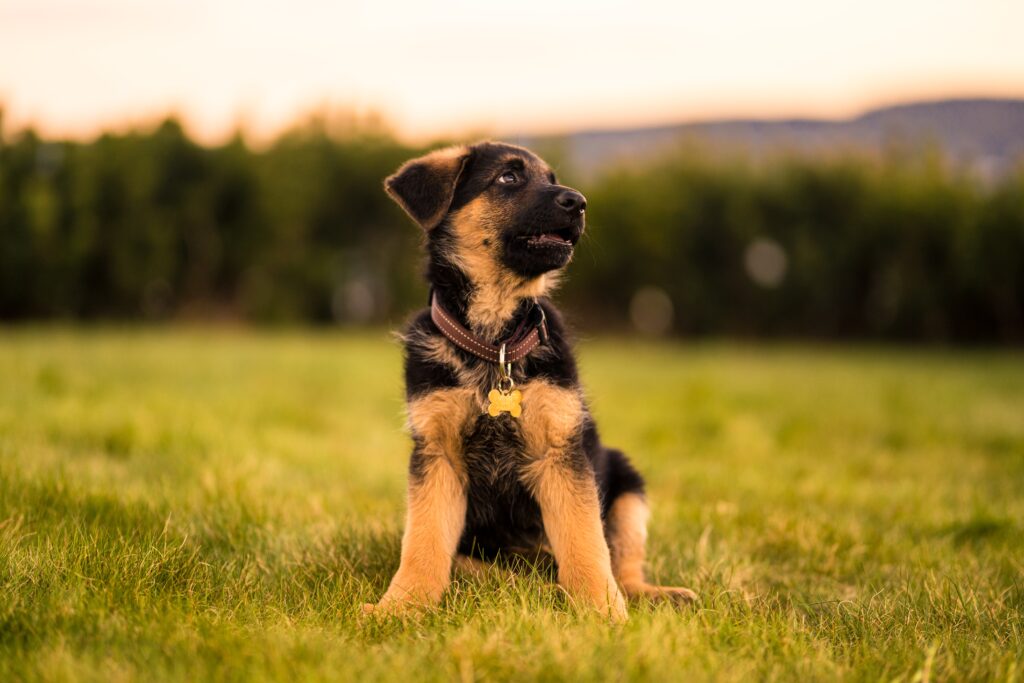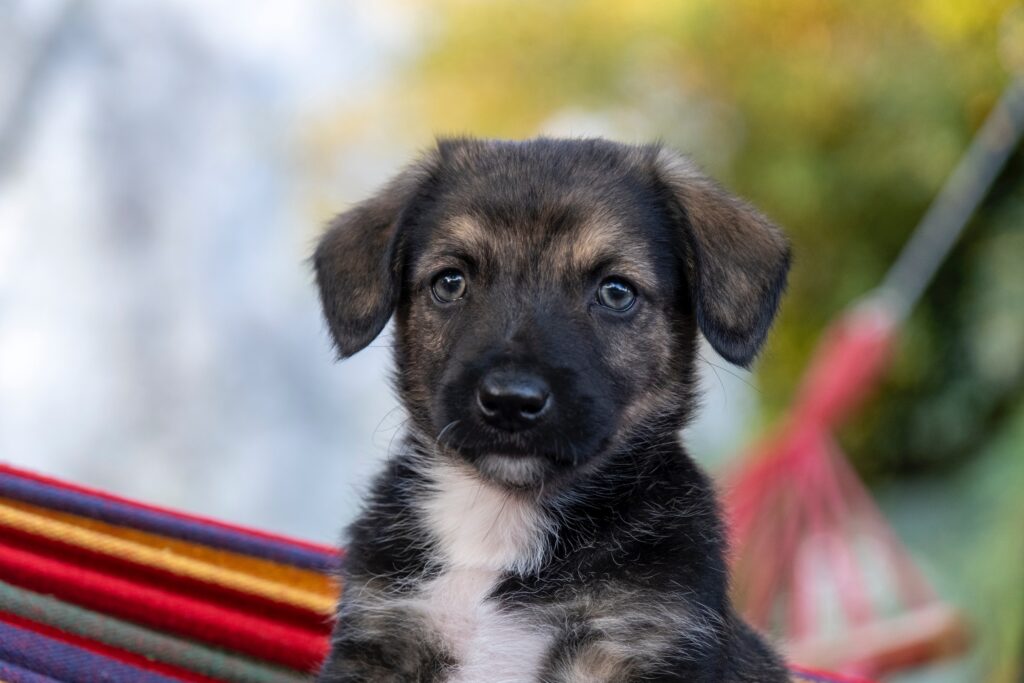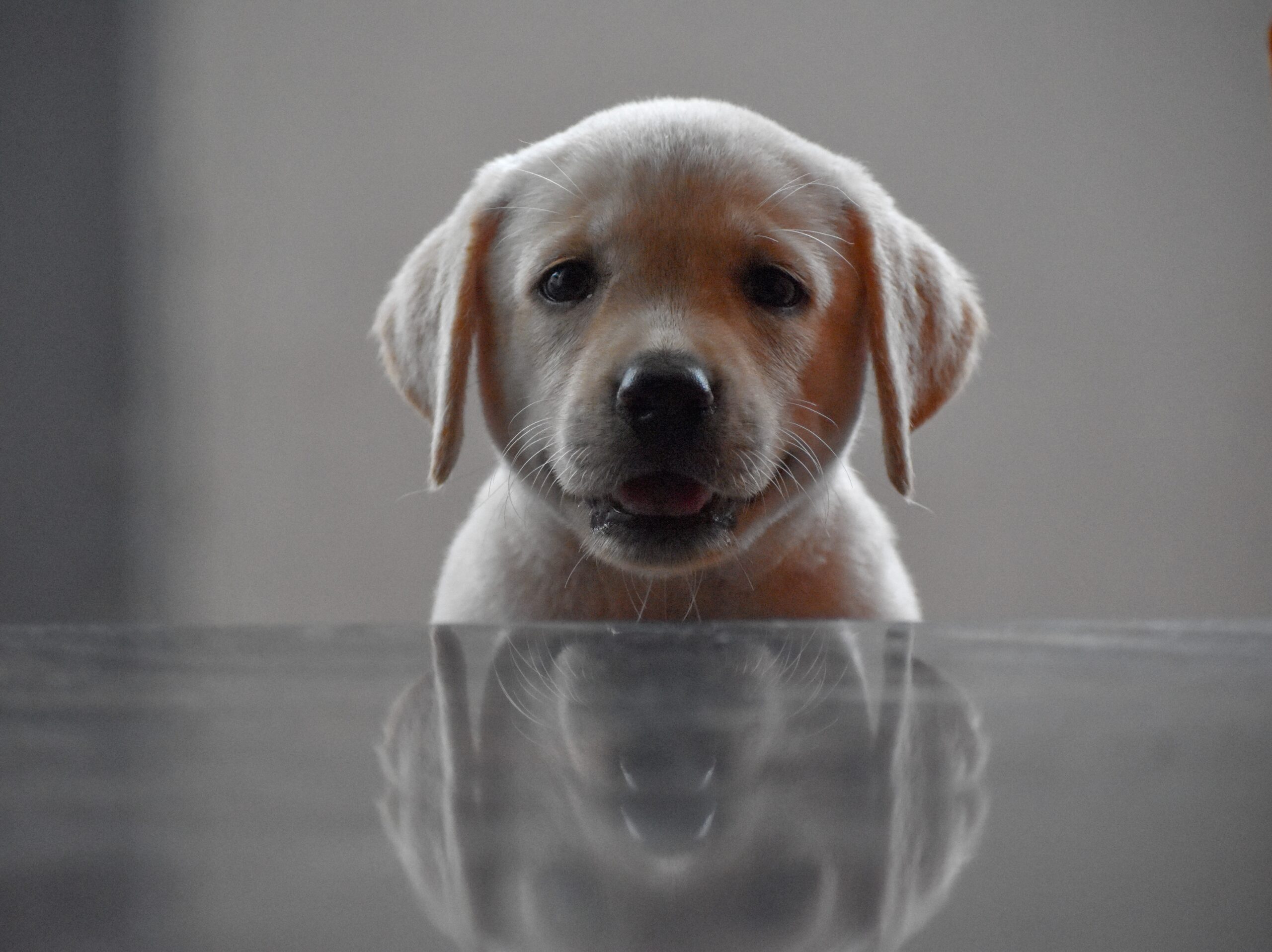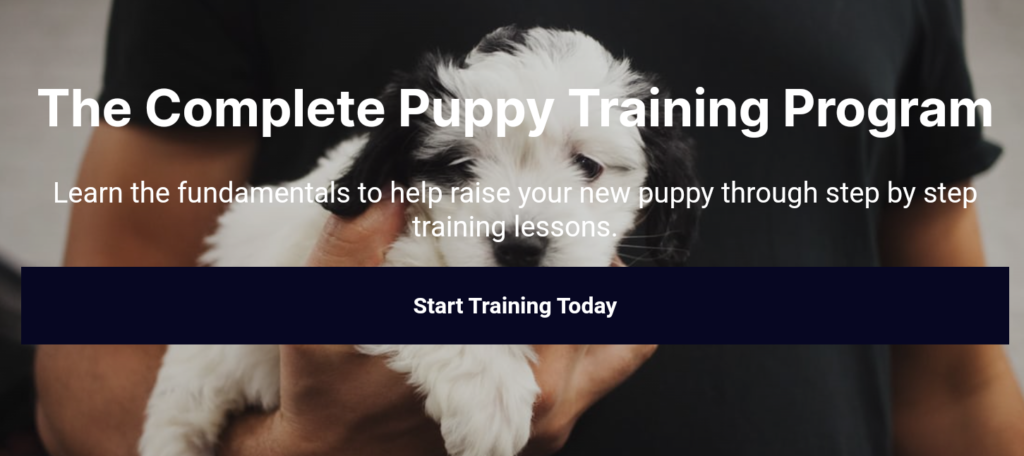Introduction
Calming a new puppy requires different types of training in various situations to help it relax and make better choices. This will then help you answer your question, How do you train a puppy to calm down?
New puppies experience stress early on as they lose the security of being with their mother and siblings, whom they have spent the first 8 weeks of their life with.
All of a sudden, a person takes the dog away to a new home that has different surroundings, sounds and smells. This new place might be even more hectic than the previous one.
This is an important time to build a strong bond with your new puppy. Between 8 and 11 weeks of age, puppies experience their first fear period. This occurs when they start interacting more with humans than dogs and may become scared of new experiences during this time. It’s also a crucial period for socialization.
To establish a strong bond with your puppy and help it settle down, it’s essential to take prompt action. Begin with toilet training, teaching its name and basic commands, and discouraging mouthing and biting.
Ensure it gets adequate rest, and initiate socialization and habituation. By continuing these efforts over the next few weeks, you will notice a positive change in your puppy’s behaviour and a stronger connection between you both.
It’s crucial to start training your puppy early on because their behaviour and ability to handle the world around them will be shaped during this time. By ensuring a calm and well-trained puppy, they will be able to make better decisions as they grow older. Don’t procrastinate on this important task.
When first becoming a puppy owner, it is important to have patience as the puppy adjusts to its new lifestyle. As the owner, it is also necessary to learn how to train and guide the new furry four-legged family member in the right direction on your own.
What are the first things to train a puppy?
I understand that it may feel like there’s a lot to accomplish, as I mentioned earlier.
To begin with, it is important to prioritize toilet training, as well as teaching your puppy to refrain from mouthing and biting. This will help promote a gentle mouth. It is also beneficial to give your puppy some alone time in small increments so it gets used to being by itself and learns to enjoy its own company.
Once you’ve completed the initial steps, it’s essential to handle mouthing and biting with sensitivity. It’s important to address this behaviour before the permanent teeth grow in. Continue working on this over the coming weeks to ensure that you achieve success.
Then look at introducing your puppy to more and more people, while also socialising it and getting it accustomed to different sounds within the home and gradually easing it outside for some socialisation too.
Look at improving your bond with the puppy through hand feeding and handling training so it learns that you are no threat and that you are a source of good things and not bad things.
This all started within the first week or so of having your puppy with you as there is a lot to do as time is against you already.
Why is time against you?
You have a short window to do early socialisation, combined with the adult teeth coming through soon. You have the dog’s brain on its way to being fully formed and your puppy hits adolescence around 20 weeks of age and puppyhood stops!

The more you do now the better. If you need to know more about what you’re up against or targets/milestones to aim for, check out this helpful Puppy Development Timeline PDF to download to keep on your PC or phone as a handy guide: Puppy Development Timeline PDF
The importance of starting the above training early on is to help a dog have a better life when it is older as a dog that has been poorly socialised, can do damage due to not having any bite inhibition, doesn’t understand commands due to not being taught any and lacks mental stimulation, can lead to a stressful life and become standoffish, timid around people, dogs and struggle in new situations when they arise.
The knock-on effect is that the dog doesn’t end up going to new places or having decent walks with the owner due to them not being able to handle the older dog, or not enjoying the time with it, so they don’t take it out.
, this could have been avoided if more had been done at the beginning when they first brought home the puppy.
Try not to be one of those owners with your new puppy and set it up for success from the start!
If you want to set your new puppy up for success but do not know how to,
It is worth checking out The Complete Puppy Training Program as you will find all the training, guidance and plans of action all in one place for you to follow daily to help educate your puppy and help calm it down from day one!
Join all the other puppy owners benefiting from The Complete Puppy Training Program by checking it out here: Raise The Perfect Puppy
What is the best way to bring home a new puppy?
Make sure that your home is already set up for your new family member. So, you will have its bed crate or both. You have different textured toys so you can figure out which texture it prefers.
You have your food, treats, Kong toys relevant mental stimulation toys and feeding equipment. You know where it will be and how to handle it.
You want your puppy to come in and feel comfortable straight away and help it build its trust with you.
Make sure you already have a good vet planned to go and see, and try and make the effort to go and see how the vet interacts with the dogs in the reception area to get a feel for how they will be with your new puppy as you want it to enjoy the experience.
Put a routine together of when you’re going to toilet train, feed it, how you’re feeding it when you’re going to train obedience and how you are going to tackle the things mentioned earlier on in this article.
Some key things, though obvious, may not be put in place. Try to keep the interactions fun and relaxed and learn to read your puppy’s communication signals to help understand it.
For example, simple things like you’ve been doing some toilet training and after a while, the puppy knows it goes out of the back door into the garden to toilet, so goes and sits at the back door waiting to go out.
The owner doesn’t pay any attention and then after a while the puppy toilets inside. After repeated times, the owner starts saying “Why does the dog not let me know it wants to go out?”.
Well it has, you just didn’t pay attention to it. Always look and learn.
Imagine you are people-watching on a park bench and watching the world go by. You can generally see interactions that are good and bad between people or get the gist of whether they are happy, sad, or something is on their mind.
Well, you should start learning all this about your new puppy to help it flourish quickly into a great dog…
Is it normal to feel overwhelmed with a new puppy?
It can be, but this is generally down to the owner not knowing what to do in certain circumstances when your puppy does something you do not like, or it doesn’t respond in a way you wanted or expected.
Just like us when we were growing up we needed repeated exposures and learning moments to cement a new behaviour. This is so we can figure out what is right from wrong, what is good and bad, and what is expected of us or not expected of us.

It is the same for a puppy to learn manners and certain etiquette in different situations. You need to show your puppy how to behave, instead of getting frustrated and then reacting the wrong way which won’t help your new puppy get off to the great start that you want.
The aim is always to set it up for success. Yes, there will be good days and bad days along the way. But the more you do right at the beginning will stand you in good stead in the future.
If you are still unsure and wonder what are the first things to train a puppy,
Then pop over and check out The Complete Puppy Training Program as that will get you off to the best start and give you everything you need to set your dog up for success from day one. Have a look now >>>The Complete Puppy Training Program<<<



1 thought on “How do you train a puppy to calm down?”
Comments are closed.